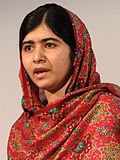Prizes
Physics
| Awardee(s) | ||||
|---|---|---|---|---|
 | Isamu Akasaki (1929–2021) | "for the invention of efficient blue light-emitting diodes which has enabled bright and energy-saving white light sources" | [4] | |
 | Hiroshi Amano (b. 1960) | |||
 | Shuji Nakamura (b. 1954) |
| ||
Chemistry
| Awardee(s) | ||||
|---|---|---|---|---|
 | Eric Betzig (b. 1960) | "for the development of super-resolved fluorescence microscopy" | [5] | |
 | Stefan W. Hell (b. 1962) |
| ||
 | William E. Moerner (b. 1953) | |||
Physiology or Medicine
| Awardee(s) | ||||
|---|---|---|---|---|
 | John O'Keefe (b. 1939) | "for their discoveries of cells that constitute a positioning system in the brain" | [7] | |
 | May-Britt Moser (b. 1963) | |||
 | Edvard I. Moser (b. 1962) | |||
Literature
| Awardee(s) | ||||
|---|---|---|---|---|
 | Patrick Modiano (b. 1945) | "for the art of memory with which he has evoked the most ungraspable human destinies and uncovered the life-world of the Occupation" | [8] | |
Peace
| Awardee(s) | ||||
|---|---|---|---|---|
 | Kailash Satyarthi (born 1954) | "for their struggle against the suppression of children and young people and for the right of all children to education." | [9] | |
 | Malala Yousafzai (born 1997) | |||
Economic Sciences
| Awardee(s) | ||||
|---|---|---|---|---|
 | Jean Tirole (b. 1953) | "for his analysis of market power and regulation" | [10] | |